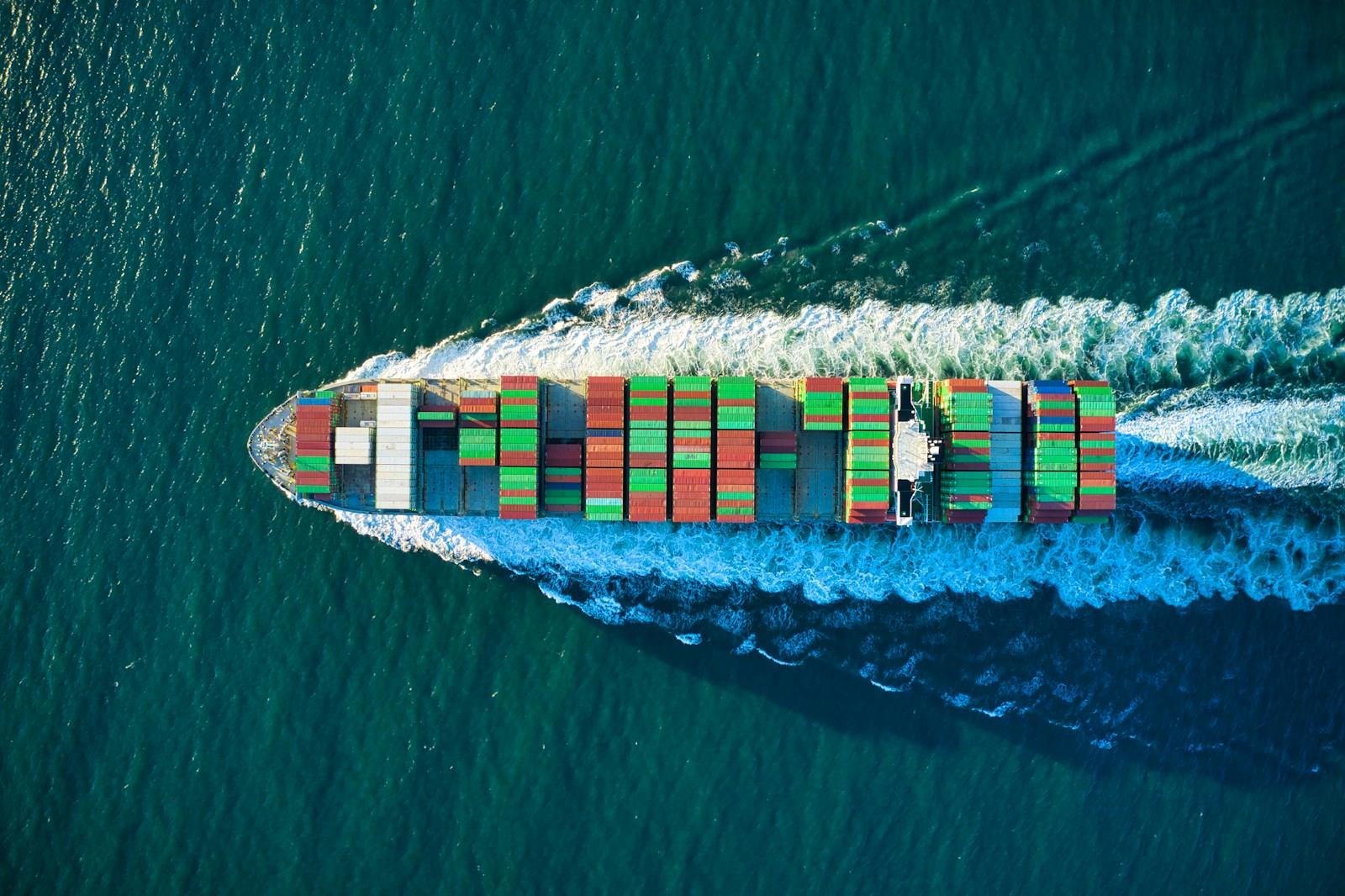Cargo Liability Claims In The UAE

Cargo liability claims arising from sea carriage in the UAE involve disputes related to the loss, damage, or delay of goods transported by sea. In the United Arab Emirates (UAE), the legal landscape for cargo claims has undergone a significant transformation with the enactment of Federal Decree-Law No. 43 of 2023 Concerning the Maritime Law (the “New Maritime Law”). This law, effective from March 29, 2024, replaces the UAE Maritime Code of 1981, aligning the country’s maritime regulations with international instruments and modern commercial realities.
The new cargo liability framework is based on the following core components:
- Broader carrier liability coverage
- Enhanced protection for cargo interests
- Clear procedural obligations
- A greater alignment with Hague-Visby Rules (although the UAE is not formally a signatory)
Table of Contents
Scope and Applicability of the New Maritime Law with respect to Cargo Claims
Article 2 of the New Maritime Law establishes the scope, applying to all seagoing vessels, ships, and maritime means engaged in freight forwarding and maritime navigation within the UAE, except for military and government vessels used for non-commercial purposes.
The law applies to:
- All contracts of carriage of goods by sea where the port of loading or discharge is in the UAE, or where the bill of lading is issued in the UAE.
- Multimodal transport operations involving at least one maritime leg.
The Carrier’s Obligations
The New Maritime Law imposes a general duty on Carriers to deliver cargo in the same condition as received, subject to the terms of the bill of lading or equivalent document. This provision establishes a presumption of liability, placing the burden of proof on the carrier to demonstrate the absence of fault.
Exceptions to the Liability
Article 175 enumerates that the carrier may be exempted from liability if the loss or damage resulted from:
- Acts of God (force majeure)
- Perils of the sea
- War, strikes, or riots
- Negligence of the shipper or cargo owner
- Inherent defect or nature of the goods
- Fire, unless caused by the fault of the carrier
The burden of proving these exceptions lies on the carrier, who must demonstrate that the cause of the loss falls under the protected category.
Obligation to Exercise Due Diligence
The Federal Law mandates that the Carrier must exercise due diligence to:
- Make the vessel seaworthy before and at the beginning of the voyage
- Properly man, equip, and supply the ship
- Ensure proper and safe stowage and care of cargo
Period of Responsibility
The carrier’s liability ranges from the time they receive the cargo until its delivery at the agreed destination. This replaces the older “tackle-to-tackle” rule with a broader, clearer period of responsibility, covering the entire transport chain.
Limitation of Liability
1. Monetary Limits
A significant reform in the New Maritime Law is the adoption of Special Drawing Rights (SDRs) as the basis for liability limits, replacing the previous AED-based caps.
Article 177 establishes the limitation of liability as:
Unless the shipper declares the value and nature of the cargo before shipment and this declaration is included in the bill of lading, the carrier’s liability is limited to:
- 835 SDRs per package/unit, or
- 2.5 SDRs per kilogram of the gross weight of the damaged or lost goods.
The higher of these two limits shall apply.
2. Loss of Right to Limit Liability
The right to limit liability is forfeited if it is proven that the loss resulted from an act or omission of the carrier, its subordinates, or agents, done with the intent to cause such loss or recklessly and with knowledge that such loss would probably result.
Time Bars/Restrictions for Cargo Claims
According to Article 187 of the UAE Maritime Law (Federal Decree Law No. 43 of 2023), the law sets strict deadlines for certain maritime claims, and courts will not hear such cases if denied and no legally-admissible excuse is provided:
- Cargo claims must be filed within one year from the date of delivery or the date delivery should have taken place.
- Recourse claims against third parties must be filed within 90 days from either the date of filing the main case or from the date of payment—whichever applies—even if the one-year cargo claim period has expired.
- Claims to recover undue payments must be filed within one year from when the claimant became aware of their right to recover the amount.
Freight Forwarders and Their Responsibilities
Article 199 of the Law delineates the role of freight forwarders, categorizing them based on their involvement:
- Principal Carrier: When the freight forwarder undertakes the carriage themselves.
- Agent of the Consignor: When acting on behalf of the consignor in arranging transportation.
Freight forwarders are obligated to:
- Adhere to Instructions: Follow the consignor’s directives regarding cargo handling.
- Ensure Proper Documentation: Maintain accurate records and contracts.
- Liability for Damage: Be accountable for loss or damage resulting from their actions or negligence.
Claims Process
The UAE Maritime Law provides a structured legal process for pursuing cargo liability and related maritime claims.
Notice of Loss or Damage
Before filing a claim, the cargo receiver must notify the carrier of any visible or suspected damage:
- Immediately upon delivery, or
- Within 3 working days for non-visible damage.
Failing to notify within this time may result in a presumption that the cargo was delivered in good condition.
Filing the Claim in Court
The claimant (e.g., cargo owner or insurer) must file the claim within the statutory deadlines under Article 187:
- One year from the date of delivery (or the expected delivery date) for cargo claims.
- Ninety days for recourse claims against third parties.
- One year for claims to recover undue payments, from the date the claimant became aware of their right.
These deadlines are strictly enforced unless the claimant proves a legally acceptable excuse (e.g., force majeure).
Determining Jurisdiction
Claims must be filed before a competent UAE maritime court, typically:
- Where the port of discharge is located,
- Where the damage occurred, or
- As agreed in the jurisdiction clause of the bill of lading or contract of carriage.
Evidence and Documentation
The claimant must provide sufficient proof of the carrier’s liability. This includes:
- The bill of lading or sea waybill,
- Delivery records and inspection reports,
- Commercial invoices, packing lists, and photographs of damage,
- Correspondence with the carrier and surveyor reports.
Carrier’s Response and Defenses
The carrier has the right to:
- Contest liability,
- Rely on statutory defenses (e.g., act of God, war, perils of the sea),
- Invoke limitation of liability under Article 177 (e.g., SDR caps),
- Argue no fault or negligence on their part.
Limitation Fund (If Applicable)
Under Article 85, if multiple claims arise from a single incident (e.g., collision or sinking), the carrier can apply to the court to establish a limitation fund.
- The court will calculate the fund based on gross tonnage and SDR values.
- Once the fund is set and secured, creditors can only claim against it.
Court Judgment and Enforcement
After reviewing evidence and legal arguments, the court:
- Issues a judgment,
- Determines liability and compensation,
- Enforces the judgment through UAE civil procedures (e.g., asset seizure, bank garnishment, etc.).
Settlement or Arbitration
Parties may also resolve disputes:
- Through negotiated settlement, or
- Arbitration, if specified in the contract (e.g., LMAA or DIAC rules).
Conclusion
Federal Decree-Law No. 43 of 2023 represents a significant advancement in the regulation of maritime transport and cargo liability in the UAE. By clearly defining the carrier’s period of responsibility, streamlining liability provisions, and aligning with international conventions, the law brings greater legal certainty and commercial predictability to cargo claims. As the UAE continues to grow as a global trade hub, this modern legal framework strengthens the country’s competitiveness and reinforces trust in its maritime sector.
Contributed by – Anakha Ajay
By entering the email address you agree to our Privacy Policy.



